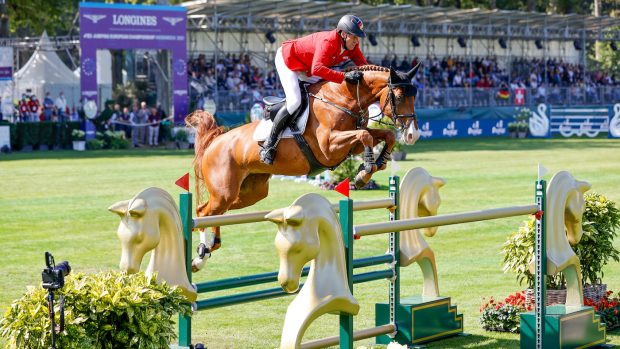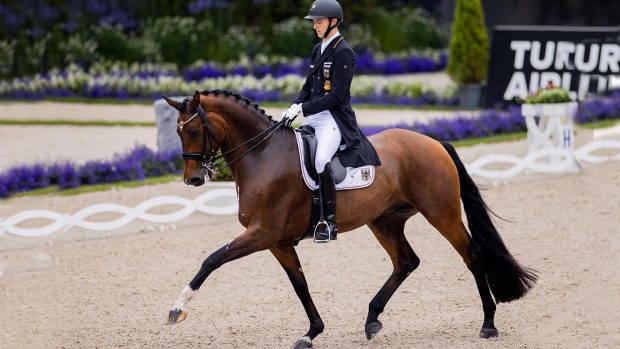There are concerns that the German equestrian industry could be adversely affected if courts allow a new tax on horses to be introduced.
Riders in Germany are anxiously awaiting a decision on the legality of the controversial proposal.
Over the past three years, a growing number of town councils have tried to introduce an annual levy called the “pferdesteuer”, ranging from €250 to €750 per horse, despite ample evidence of devastating outcomes from the rural economy.
The German equestrian federation (FN) has led the national lobby against it, applying to the courts for a “Normenkontrollverfahren” (a ruling that horse tax law contradicts other laws), backing a nationwide petition and supporting local action groups in the municipalities at risk.
Popular campaign merchandise carries a logo that reads “Pferdesteuer? Nein danke!”
Sönke Lauterbach, chief executive of the FN, spoke recently at the World Horse Welfare conference in London (13 November) and discussed the worrying attitude of Germany’s town councils who assumed all horse-owners were rich.
The German sports horse industry is substantial, with state funding of studs and a strong culture of breeding by private individuals and public subsidies that historically have acted as an incentive to farmers to keep a few breeding mares.
The FN has also highlighted that 86% of horses are used for “leisure” purposes, owned by people who invariably make “financial sacrifice”, that 70% of active German riders are aged under 21, and for every horse, four jobs are generated.
The FN also highlights the contradiction in taxing a publicly-funded pastime which is one of just six recognised by the German Olympic sports confederation as having a “therapeutic” value.
Mr Lauterbach added: “I am very concerned to hear about the extent of fly-grazing in Britain. It’s something we just don’t see yet in Germany, but I guess that could all change if the horse tax becomes widespread,” he said.
Three towns — Allendorf, Kirkheim and Schlangenbad — have applied the pferdesteuer so far, though most riders who have received tax bills have refused to pay and have lodged appeals, which are taking a long time to process. Other municipal authorities backed down after horse owners organised demonstrations.
Unlike Britain, Germany is made up of 16 states that each retain some sovereignty, and may impose local taxes on any items or services that are not already taxed by central government.
Horse owners seem most at risk in the historically wealthier west of the country. But no town councils are considering it in Bavaria — whose most famous equestrian resident is Olympic eventing champion Michael Jung.
In 1982, the Bavarian administrative court declared that local controls on riding horses were inadmissible. Campaigner Jan Toejnes said: “Something supported by public money can’t be subject to a tax. For example, “hippo therapy” is of public interest — so how can you put a tax on horses used for working with disabled people?”





